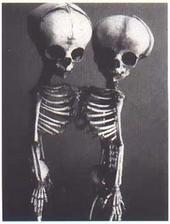Music:
Member Since: 10/20/2004
Influences: time never lets itself be seen outside of the aging of structures of matter, but the speed of time-light,on the other hand, lets us perceive, not only the earth but also this 'universe' which no more surrounds us then space contains us fashioned as we are by the acceleration of light in a vacuum.for Einstein the present is already the centre of time; the past of the original big bang is not, and scientifically cannot be,that old centre. the true centre is always new, the centre is perpetual, or to put it even more precisely, the present is an eternal present.
Sounds Like: we are not to use airplanes in artwork any longerTransgression is not immoral. Quite to the contrary, it reconciles the law with what it forbids; it is the dia- lectical game of good and evil (Baudrillard, 1987: 81). There ain't no sin and there ain't no virtue. There's just stuff people do. It's all part of the nice, but that's as far as any man got a right to say (Steinbeck, 1939:31-32).The criminalization of "deviant acts" transforms and reduces broader social meanings to legal ones. Once a category of behav- iors has become defined by statute as sanctionably deviant, the behaviors so-defined assume a new set of meanings that may ob- scure ones possessed by those who engage in such behaviors. "Computer deviants" provide one example.The proliferation of computer technology has been accompa- nied by the growth of a computer underground (CU), often mistak- enly labeled "hackers," that is perceived as criminally deviant by the media, law enforcement officials, and researchers. Draw- ing from ethnographic data, we offer a cultural rather than a criminological analysis of the underground by suggesting that the CU reflects an attempt to recast, re-appropriate, and reconstruct the power-knowledge relationship that increasingly dominates the ideology and actions of modern society. Our data reveal the com- puter underground as an invisible community with a complex and interconnected cultural lifestyle, an inchoate anti-authoritarian political consciousness, and dependent on norms of reciprocity, sophisticated socialization rituals, networks of information sharing, and an explicit value system. We interpret the CU cul- ture as a challenge to and parody of conventional culture, as a playful attempt to reject the seriousness of technocracy, and as an ironic substitution of rational technological control of the present for an anarchic and playful future.
Type of Label: None
